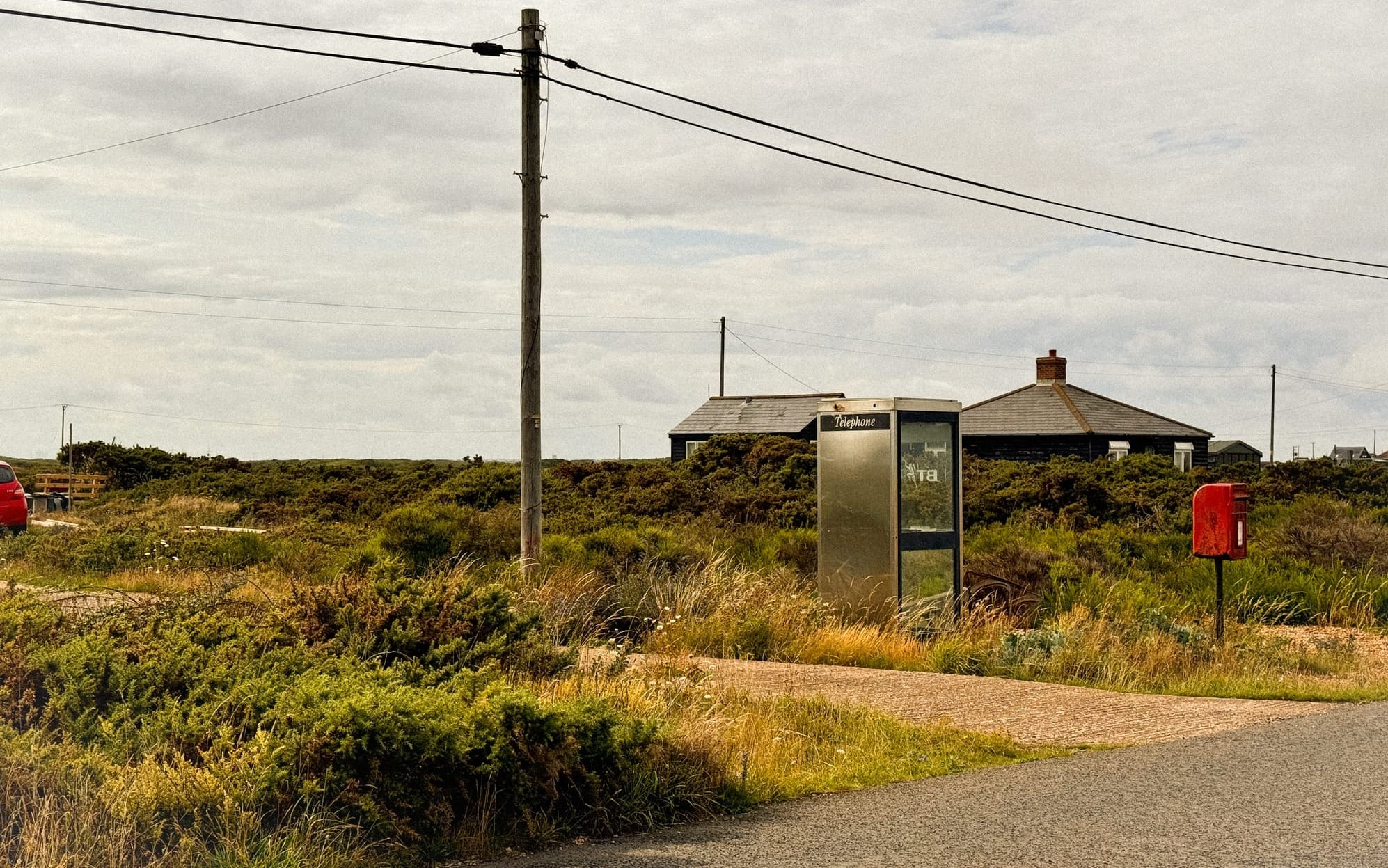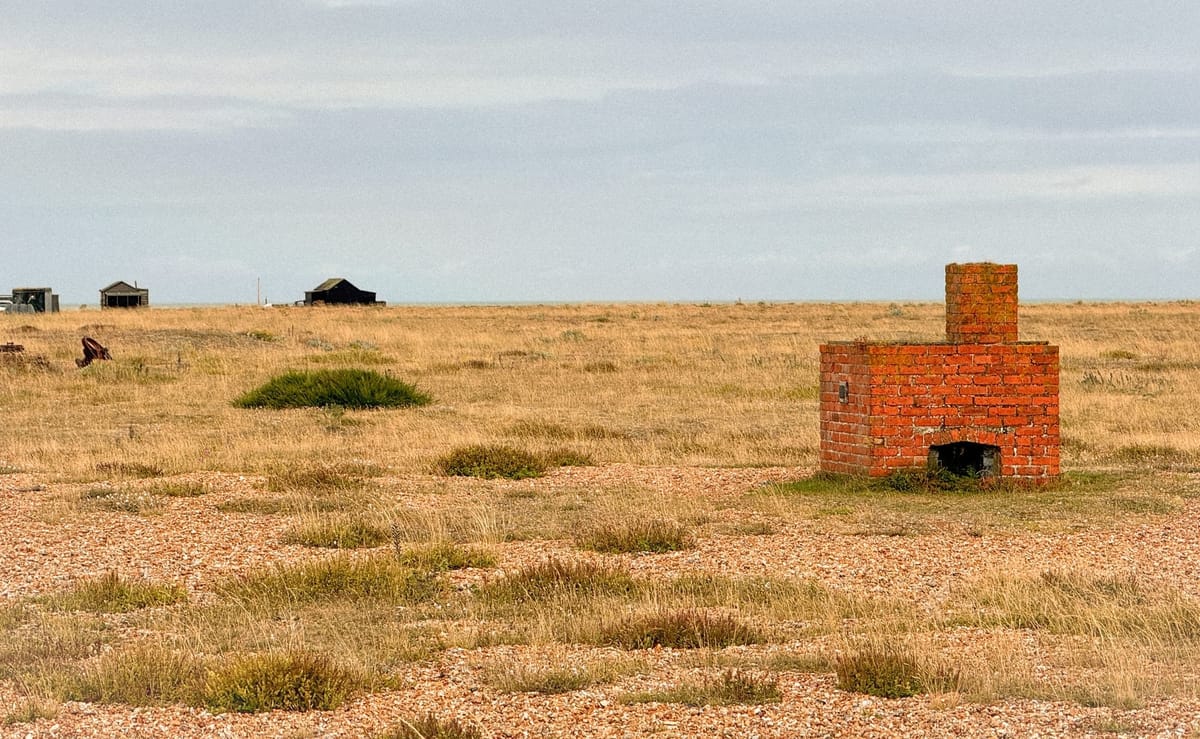When there is fog in Dungeness, the lighthouse emits an obnoxious bleep that goes some way to explaining why having “a voice like a foghorn” is pejorative. I know this because I once spent a week trying to sleep just metres away from it. That high-pitched sound cuts through the shingle’s otherworldly silence — a reminder that you are vulnerable to the elements, even if your Airbnb does have a sauna.
I went to Dungeness because I love that space and silence that some people call desolation. People call it the UK’s only desert, which implies it’s barren, but like the real desert I love in California, it’s far from it. Dungeness is home to an RSPB reserve and 600 species of plants, which is a third of all the species of plants found in Britain. Despite the short, freezing December days, every day saw sunshine and pink sunsets.
Among the old fishing equipment, shacks and boats, I spent hours talking to some of the most interesting people I have ever met, and I have been going back regularly since. I did not, three years ago, think about how my spending hundreds of pounds on a newly renovated Airbnb might contribute to the destruction of a community I had loved enough to join for a week.
Sitting on a jutting headland of shingle in the English Channel, the Dungeness Estate is unique for many reasons. It is owned by EDF, which operated the now defuelling Dungeness Power Station that looms over everything. It is both a private estate and a nature reserve, which makes building near impossible. That means, for the most part, it appears untouched. Remnants of its strong fishing history sit rusting on the shore, and many of the houses are wooden shacks decorated to their owners’ unique tastes. The permanent residents, many of them artists, are deeply rooted to the peninsula.

Register for free to read this article.
